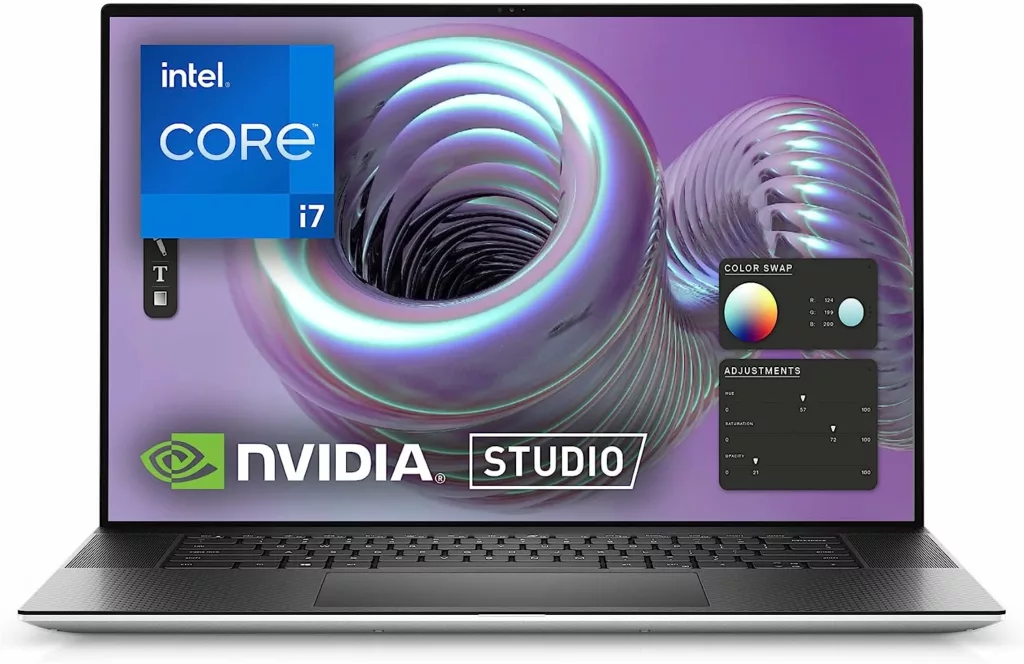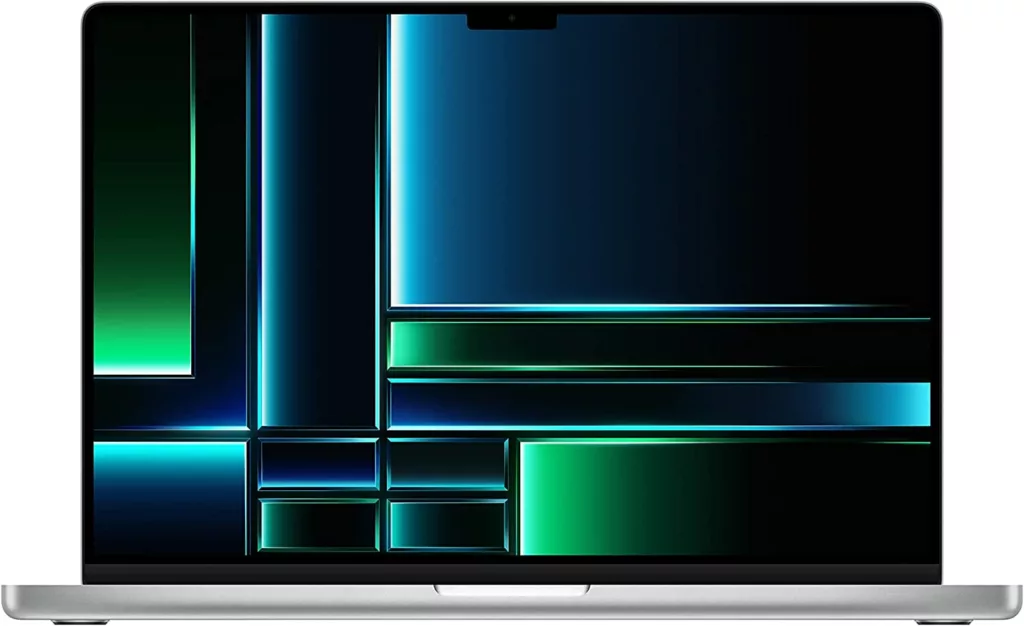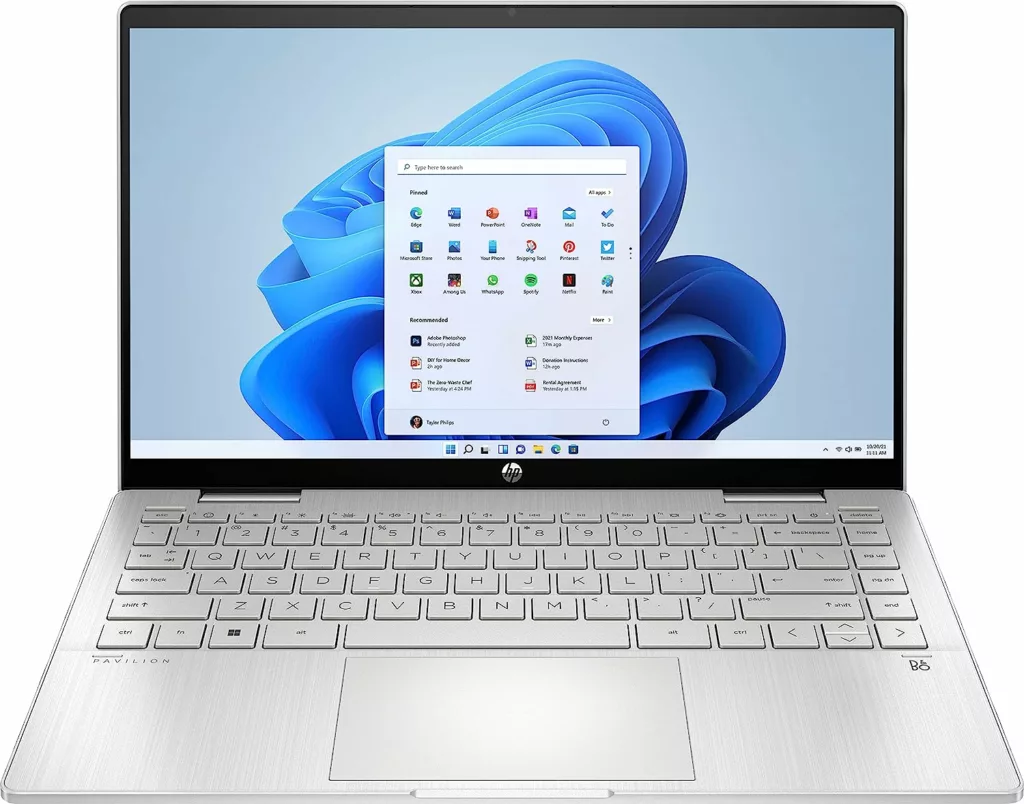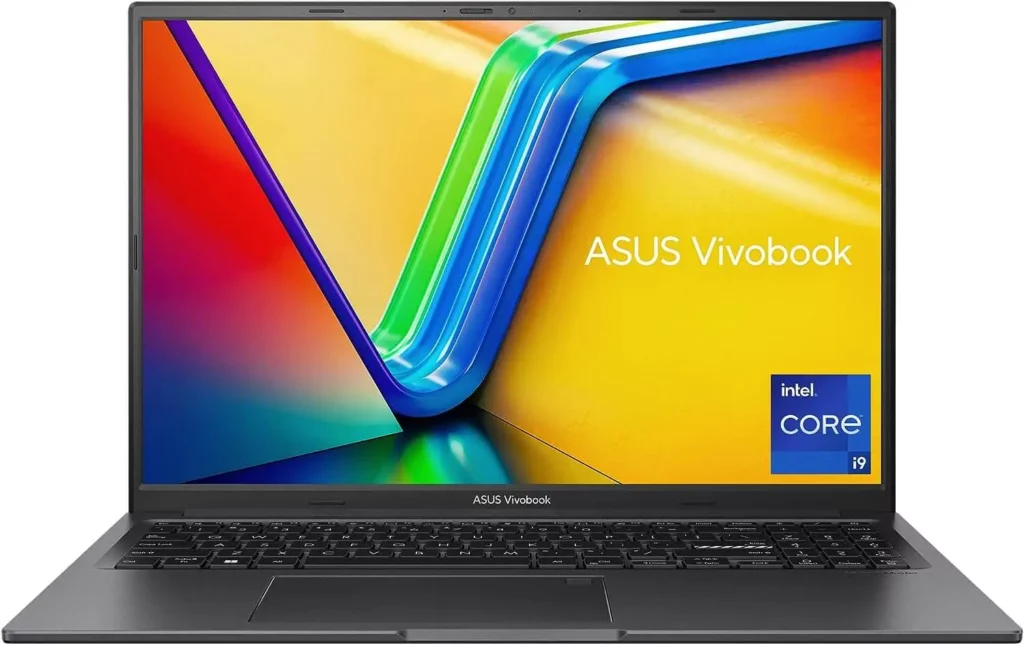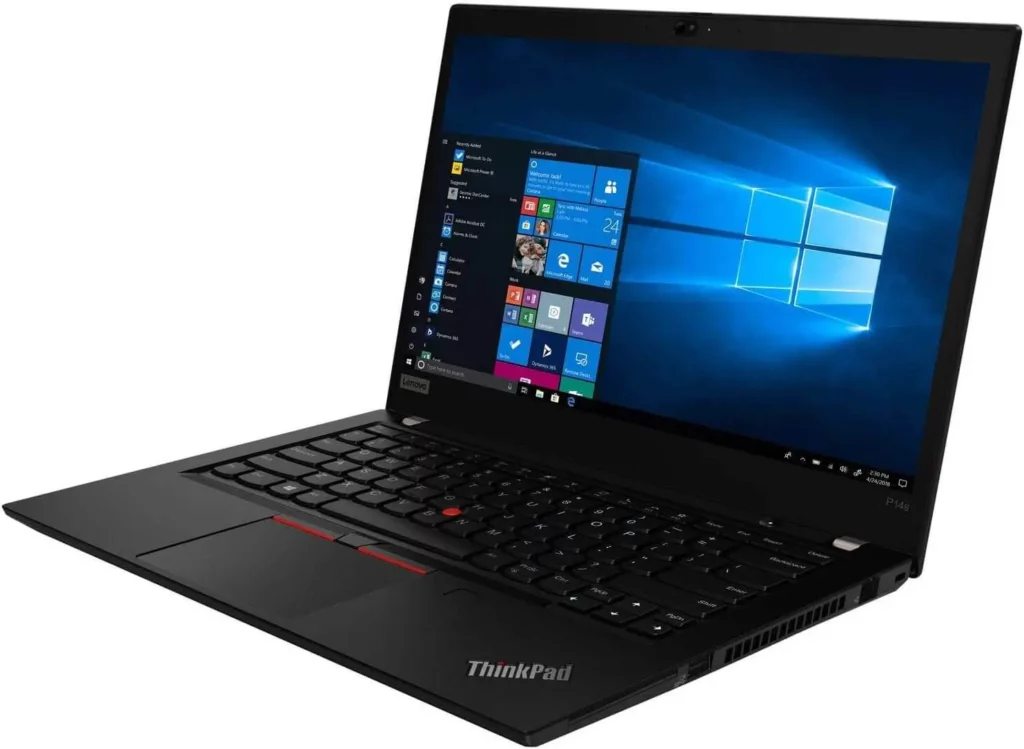Having access to cutting-edge technology is essential for supporting innovation and productivity in the constantly developing discipline of civil engineering. This article provides a comprehensive look at the best laptops on the market for civil engineering students. We reviewed five excellent options that can handle the intensive work of ambitious engineers.
These portable computers are built to facilitate innovation, efficacy, and precision in activities ranging from fluid CAD modeling to precise simulations. These laptops equip the next generation of civil engineers with the tools they’ll need to tackle difficult engineering projects and bring new ideas to reality. Come along with us as we search for the ideal technological and engineering solution.
Our Top Recomendations For You!
After conducting extensive research and carefully considering the necessary features, we have shortlisted the optimal laptops for you.
| Features | Dell XPS 17 9710 | Apple MacBook Pro | HP Envy 16 | Asus Vivobook 16 | Lenovo ThinkPad |
|---|---|---|---|---|---|
| Display | 17″ 1920 x 1200 | 16.2″ mini-LED | 16″ WQXGA OLED | 16″ 3.2K OLED | 14″ FHD IPS Touch |
| Processor | 4.6 GHz Core i7 | Apple M2 Pro/Max | 5.4 GHz Core i9 | 13th Gen Core i9 | Intel Core i7-1185 |
| RAM | 16 GB DDR4 | Up to 16GB – 32 GB | 32GB DDR5 | 32GB DDR4 | 32GB DDR4 |
| Storage | 1TB SSD | 512GB-1TB SSD | 2TB NVMe SSD | 1TB SSD | 1TB NVMe SSD |
| GPU | NVIDIA GeForce RTX | 19-core/38-core | NVIDIA GeForce | NVIDIA GeForce RTX | NVIDIA Quadro T500 |
| Battery Life | Up to 10 hours | Up to 22 hours | Up to 8 hours | Up to 11.5 hours | Up to 10 hours |
| Connectivity | Bluetooth Wi-Fi 6 | Thunderbolt 4, SDXC, HDMI, Headphone Jack | Bluetooth, Wi-Fi 6E | Bluetooth, Wi-Fi 6E | Thunderbolt 4, Wi-Fi 6, Bluetooth 5.1 |
| OS | Windows 11 Home | MacOS | Windows 11 Home | Windows 11 Home | Windows 11 Pro |
| Backlit Keyboard | Yes | Yes | Yes | Yes | Yes |
| Touchscreen | Yes | Yes | Yes | Yes | Yes |
| Camera | 720p HD with | 720p HD | 5MP IR Camera | 720p HD | 720p HD |
Here is the tabular summary of all the products and their features for a quick comparison!
Essential Software for Civil Engineering Students
Considering the essential software used by civil engineering students before buying a laptop is crucial because it ensures compatibility and optimal performance. Investing in a laptop that can efficiently run these software tools will enhance productivity, support complex simulations, and aid in academic success. Civil engineering students often utilize the following software for their coursework, design, and analysis tasks.
Buying Guide: Best Laptop for Civil Engineering Students
Powerful processor: For students of civil engineering, a powerful CPU is the most important component of a reliable laptop. For demanding tasks like 3D modeling and conducting complicated simulations, a laptop with an Intel Core i7 or AMD Ryzen 7 CPU will provide the best speed and productivity. These processors make it simple for students to finish even the most involved engineering projects, letting their imaginations run wild and producing outcomes that have never been seen before.
RAM: The capacity to multitask is crucial in the fast-paced field of civil engineering. Students can utilize numerous programs at once with minimal lag or interruption on laptops having at least 16GB of RAM. This large memory allotment ensures that engineering software runs without a hitch, allowing students to work efficiently on even the most involved projects.
Dedicated Graphics Card: A dedicated graphics card is often a game-changer for civil engineers who rely heavily on visual representation. High-end graphics and engineering applications run smoothly on laptops equipped with NVIDIA GeForce or AMD Radeon graphics cards. These computers excel in realistic 3D modeling and demanding simulations, inspiring students to think outside the box and empowering them to take on challenging visualization tasks.
SSD storage: Students in the field of civil engineering must be able to effectively organize substantial engineering files and coursework. Laptops with large storage capacities, such as Solid State Drives (SSD), allow students to save and quickly access their work. Engineering students can concentrate on their work without worrying about space constraints because of fast data access and straightforward file administration.
Screen Resolution: An excellent monitor is essential for productive and stress-free CAD work. Complex engineering designs can be properly visualized on laptops with 15-inch or larger screens. By immersing them in a world of vivid details and giving them the tools to bring their ideas to life with precision, high-resolution displays with accurate color representation enhance the engineering experience.
Efficient Battery: When conducting research or presenting their findings, civil engineering students are often on the go. In such conditions, a long-lasting battery is essential to ensure continuous production. Students can keep working and studying without stopping to look for an electrical outlet thanks to long-lasting laptop batteries.
Portability: Students who must carry their computers to and from class, lab, and the job site like lightweight designs. Because of the portability and flexibility of today’s laptop computers, students may take their work with them wherever they go.
Connectivity: The peripheral integration needs to be simple for civil engineering students who frequently use external devices. Connecting external screens, printers, and storage devices is a breeze on laptops thanks to their several USB ports, HDMI output, and other relevant connectors.
Durability: Students majoring in civil engineering should invest in sturdy laptops that can endure regular use and possible damage. The laptop is built to withstand the stresses of an engineering student’s everyday routine.
Protection against Overheating: Performing intensive engineering tasks can cause the laptop to overheat, which can reduce its performance. Protected from overheating, your laptop will continue to function at its best no matter how long your task takes.
Integrating Software: Engineering students rely heavily on specialized software for their schoolwork. A laptop that is compatible with the necessary engineering software allows for easy integration, which speeds up the process of completing projects and tasks.
Networking: The reliability of wireless connections is crucial in today’s interconnected world. Laptops with Wi-Fi 6 (802.11ax) support may connect to the internet quickly and wirelessly, opening up new possibilities for study, teamwork, and communication in the digital realm.
This article provides an in-depth comparison of five of the most popular laptops in the civil engineering field, breaking down key specifications to aid in purchasing selections. Designed with civil engineering students’ academic success and professional development in mind, these laptops place a premium on performance, portability, and compatibility. For a more comprehensive guide, refer to the Ultimate Laptop Buying Guide.
Our Picks for you!
Detailed Review
Highlights:
- 17-inch 1920 x 1200 monitor for immersive images
- High-performance 4.6 GHz Intel Core i7 11th Generation processor
- 16 GB DDR4 RAM
- 1TB SSD for extensive storage and rapid data access
- NVIDIA GeForce RTX 3050 GPU with 4 GB dedicated graphics memory for improved visuals
- 10-hour battery life for productivity
- Bluetooth connectivity for wireless devices and peripherals
- Backlit keyboard for low-light use
- Memory card slot for convenient external data transfer
- Windows 11 Home for easy computing
Review
The Dell XPS 17 9710 is an excellent pick for civil engineering students due to its powerful hardware and smooth performance with a wide range of necessary engineering software. This laptop’s 11th-gen Intel Core i7-11800H processor and 16GB of DDR4 memory running at 3200MHz make short work of resource-intensive software, making it perfect for engineering simulations, models, and analyses. The laptop’s NVIDIA GeForce RTX 3050 graphics card with 4GB GDDR6 VRAM is ideal for civil engineering students because it boosts the performance of design software and allows for real-time 3D model visualization. The availability of tools like AutoCAD, Autodesk Revit, and SketchUp will give students a leg up when it comes to drawing up blueprints and layouts for buildings.
The wide 17-inch Full High Definition Plus InfinityEdge Anti-Glare display’s 1920 × 1200 pixel resolution creates a vivid and detailed image, making it a pleasure to work on complex engineering projects and minute details. This high-resolution monitor accurately depicts engineering drawings and building plans, decreasing the need for frequent breaks to rest the eyes. The 1TB M.2 PCIe NVMe solid-state drive in the laptop is ideal for storing and retrieving large files, such as those associated with projects, data sets, and software repositories. Rapid storage facilitates the quick loading times and trouble-free workflow deployment of resource-intensive software like SAP2000 and ETABS.
Its 10-hour-long battery life further ensures continuous productivity, allowing engineering students to keep working on projects even when away from their desks. In addition, the laptop’s support for Windows 11 Home improves the user experience by enabling the latest software features and upgrades and giving a straightforward and welcoming interface.
The silver color and thin profile of the Dell XPS 17 9710 give it an air of sophistication and class. This laptop’s excellent portability means that it may be easily transported by students from class to class or from the workplace to the classroom. This laptop has a wide range of communication options, including Bluetooth for simple wireless connection to accessories. The lack of an optical drive also aids in its portability, while it still has plenty of connections to meet modern requirements.
In conclusion, the Dell XPS 17 9710 is an excellent choice for civil engineers since it not only provides powerful performance and portability but also the processing power required to run a wide variety of civil engineering software. This laptop is ideal for civil engineering students since it allows them to efficiently and accurately complete a wide variety of assignments, from CAD design and structural analysis to environmental simulations. For pricing please visit Amazon.
Highlights:
- ProMotion-enabled 16.2-inch mini-LED backlit Liquid Retina XDR display
- Apple M2 Pro or M2 Max SoC for powerful processing
- Up to 96GB of unified memory
- 512-1TB SSD for multitasking and data management
- 19-core or 38-core GPU for great graphics and video
- Long battery life of up to 22 hours
- Thunderbolt 4, SDXC, HDMI, and headphone jacks
- MagSafe 3 for safe charging Wi-Fi 6E and Bluetooth 5.3 for seamless wireless connectivity
- Portability without sacrificing performance
Review
Apple’s MacBook Pro with Touch ID is a remarkable laptop that is ideally suited for civil engineering students. It provides a robust computing experience that boosts productivity and satisfies the stringent demands of civil engineering tasks by utilizing cutting-edge technology and innovative features. The extraordinary 16.2-inch mini-LED backlit Liquid Retina XDR display with a high resolution of 3456 2234 pixels and ProMotion technology offers exceptional clarity, color accuracy, and contrast, making it ideal for intricate civil engineering design work and data analysis.
This laptop is equipped with the latest System on Chip (SoC), the Apple M2 Pro or M2 Max, as well as up to 96GB of unified memory and 1TB of storage, allowing students to complete resource-intensive tasks with ample resources. The MacBook Pro offers unrivaled cognitive power thanks to its 12-core CPU (8 performance cores and 4 efficiency cores), 38-core GPU, and 16-core Neural Engine. Students are able to operate circuit simulators, CAD tools, and data analysis software with ease, ensuring their effectiveness. The laptop is available with either a 19-core or 38-core GPU, providing exceptional graphics processing for demanding visualizations, simulations, and multimedia duties.
The MacBook Pro includes three Thunderbolt 4 (USB-C) interfaces for charging, display output, and high-speed data transfer. The versatility of the device is enhanced by the presence of an SDXC card slot, an HDMI interface, and a 3.5 mm headphone input. In addition, the reintroduction of MagSafe 3 enables convenient and secure charging.
The laptop is equipped with Wi-Fi 6E (802.11ax) and Bluetooth 5.3, allowing for fast and dependable wireless connections for collaboration and research. The sleek and compact design of the MacBook Pro makes it effortless to transport between classes, laboratories, and project sites without sacrificing functionality or performance. It is suitable for long study sessions and on-the-go tasks due to the battery life of up to 22 hours.
The Apple 2023 MacBook Pro 16-inch is an excellent option for students of civil engineering. Its superior display, powerful processing capabilities, extensive connectivity options, and portability make it an exceptional instrument for challenging civil engineering projects and academic achievement. Students can effortlessly actualize their full potential and excel in their civil engineering endeavors with this MacBook Pro. For pricing information, please visit Amazon.
Highlights:
- 24-Core, 5.4 GHz Intel Core i9-13900HX processor
- 8GB GDDR6 VRAM
- NVIDIA GeForce RTX 4060 GPUs support real-time 3D visualization
- Upgraded 32GB DDR5 SDRAM at 4800 MHz for blazingly quick multitasking
- A 2TB NVMe M.2 SSD for accelerated storage
- 16-inch WQXGA LED-backlit touchscreen with 120Hz refresh
- Reduces eye discomfort with low-blue light technology
- HDMI, Thunderbolt 4, USB 3.2, etc
- Bluetooth 5.3 and Intel Wi-Fi 6E AX211 with enhanced performance.
- 5MP IR Camera has a safety shutter
- Lightweight weighing 5.91-pounds
- 8-hour battery life
- Windows 11 Home for usability and the newest features
Review
The HP Envy 16″ WQXGA IPS Touchscreen Laptop is a potent computing device designed to satisfy the stringent needs of civil engineering students. It features a 24-core Intel Core i9-13900HX processor with clock rates of up to 5.40 GHz via Intel Turbo Boost Technology. This processor’s 32 threads and 36 MB of Intel Smart cache enable efficient multitasking and the processing of complex engineering simulations, numerical analysis, and data-intensive software.
The laptop’s NVIDIA GeForce RTX 4060 graphics card with 8GB GDDR6 VRAM improves the performance of design software and facilitates real-time rendering of complex 3D models. The seamless operation of applications such as AutoCAD, Revit, and STAAD.Pro enables students to create and analyze precise architectural and structural designs and plans.
With an upgraded 32GB DDR5 SDRAM clocked at 4800 MHz, the HP Envy 16″‘s memory performance is lightning rapid. This assures quick data access and seamless multitasking, allowing students to efficiently complete complex projects. In addition, the 2TB NVMe M.2 SSD offers ample storage space for large project files and datasets, thereby reducing load times and improving workflow efficiency.
The laptop has a 16-inch WQXGA LED-backlit touchscreen display with a resolution of 2560 x 1600 and a refresh rate of 120Hz. The display’s sRGB coverage of 100% ensures accurate color reproduction, making it ideal for architectural drawings and construction plans. In addition, the minimal blue light technology reduces eye strain during lengthy engineering tasks, fostering a comfortable and focused work environment.
The HP Envy 16″ offers a variety of connectivity options, such as two USB-C Thunderbolt 4 ports, a USB 3.2 port, HDMI v2.1, a headphone/microphone combo connection, a card reader, and a coaxial plug power jack. Bluetooth 5.3 and Intel Wi-Fi 6E AX211 provide high-speed data transmission and dependable wireless connections for seamless collaboration and online research. This laptop is equipped with an HP True Vision 5MP IR Camera with a privacy shutter to enhance security. During online meetings and video conferences, students can rest assured that their privacy is protected.
With its streamlined appearance and 5.91-pound weight, the laptop is highly portable, making it an excellent option for engineering students who must work on the go. The 6-cell, 83Wh battery provides up to 8 hours of average runtime, allowing for increased productivity without frequent recharging.
The HP Envy 16″ WQXGA IPS Touchscreen Laptop is, in conclusion, an exceptional companion for civil engineering students. Its potent processing capabilities, seamless graphics performance, ample memory and storage, immersive display, flexible connectivity, and enhanced security features make it a formidable option for complex engineering tasks. With this laptop in their arsenal, students of civil engineering can excel in their academic endeavors and embark on a journey of innovation and creativity in their chosen field. For pricing please visit Amazon.
Highlights:
- Multitasking 13th Gen Intel Core i9-13900H CPU
- NVIDIA GeForce RTX 4060 GPU, MUX Switch optimizes graphics performance
- Ultra vivid 3.2K OLED NanoEdge display with 120Hz refresh rate
- Fast project and data access with 32GB DDR4 RAM and 1TB SSD
- Windows 11 Home is user-friendly with new features
- Productivity-boosting 11.5-hour battery life
- Reliable Bluetooth and Wi-Fi 6E for wireless performance
- Indie Black is sleek and professional
- Portable slim design sans optical drive
Review
The ASUS Vivobook 16X OLED Laptop stands out as a powerful and versatile solution, making it perfect for students majoring in civil engineering. Whether your day calls for tackling intricate designs or hours of gaming fun, this laptop has you prepared. The Intel Core i9-13900H processor in this laptop is 13th generation and can reach speeds of up to 5.4 GHz. The NVIDIA GeForce RTX 4060 GPU in this laptop is capable of extremely high frame rates and multitasking capabilities. The MUX Switch sets it apart by giving you full command over the graphics performance, letting you tailor it to your needs.
The 16-inch 3.2K OLED NanoEdge display’s ultra-vibrant colors and rapid 120Hz refresh rate make it a visual treat. The excellent resolution of the monitor (3200 x 2000 pixels) offers crisp and distinct images, whether you’re working with complex engineering models or watching multimedia content.
The 32GB of DDR4 RAM and the 1TB SSD on this laptop are more than enough for running resource-intensive software and accessing massive datasets quickly. It makes it easy to switch between tasks without interruption and reduces waiting time, both of which contribute to increased output and streamlined operations. The battery life of this laptop is fantastic, lasting up to 11.5 hours under normal conditions. You can complete all of your civil engineering work without having to worry about finding a power outlet, thanks to the longer battery life. No matter if you’re in the classroom, out in the field, or deep in an engineering project,
The ASUS Vivobook 16X, running Windows 11 Home, improves upon the standard laptop experience by providing an intuitive interface and the newest software advancements. The laptop supports a variety of wireless connections, including Bluetooth and 802.11ax Wi-Fi, allowing for hassle-free online study, teamwork, and chat. The laptop’s sleek Indie Black color, small footprint, and 6.98-pound weight make it ideal for travel. You may take your engineering work with you and not worry about the quality suffering.
Thunderbolt 4, USB 3.2 Gen 1, an HDMI 2.1 port, an SD 4.0 card reader, Wi-Fi 6E, and Bluetooth 5 are just some of the many connections that can be made with the ASUS Vivobook 16X OLED Laptop. Students in the field of civil engineering can benefit from dependable wireless connectivity, external display support, and streamlined data transfer for increased efficiency and teamwork.
If you’re in school for civil engineering, you should get yourself an ASUS Vivobook 16X OLED Laptop. Whether you’re analyzing data, planning a building, or playing a game for enjoyment, this laptop gives you the capacity to see the world as you imagine it. For pricing please visit Amazon.
Highlights:
- 14-inch Full-HD IPS touchscreen with anti-glare technology and slim bezel
- Intel Core i7-1185G7 processor
- with 32GB DDR4 RAM and 1TB NVMe M.2 SSD
- NVIDIA Quadro T500 for enhanced graphics and simulation studies
- 10-hour battery life for efficient working
- Windows 11 Pro
- Keyboard lighting and biometric reader
- Thunderbolt 4 adaptability
- Wi-Fi 6 and Bluetooth 5.1 ensure wireless connectivity
- 720p HD surveillance camera with shutter
Review
The Lenovo ThinkPad P14s Gen 2 Laptop is ideally suited for civil engineering students, as it provides a robust and efficient computing experience. The 14″ FHD IPS touchscreen display enables students to design and simulate with precision and clarity. The Intel Core i7-1185G7 processor and NVIDIA Quadro T500 Graphics enable smooth simulations and modeling in applications like AutoCAD and Revit.
With 32GB of DDR4 RAM and a 1TB NVMe M.2 SSD, this laptop can effortlessly manage large datasets and intricate engineering projects. It operates on Windows 11 Professional and provides a user-friendly interface and productivity-enhancing features for a seamless workflow. The backlit keyboard, biometric reader, and TrackPoint enhance the usability and security of routine tasks. Intel Wi-Fi 6 and Bluetooth 5.1 provide wireless connectivity that is quick and reliable, making the laptop ideal for collaborative work and online research.
The 720p HD camera with a privacy shutter guarantees privacy and crystal-clear images for video conferences and presentations. With a 50Wh Lithium-Ion battery providing up to 10 hours of battery life, students can work on assignments without fear of running out of power. The numerous ports on the laptop, which include 2x Thunderbolt 4, USB 3.2 Gen 1, HDMI, and a headphone/microphone combo input, facilitate the connection of external devices and displays.
In conclusion, the Lenovo ThinkPad P14s Gen 2 Laptop is an ideal companion for civil engineering students, empowering them to efficiently and effectively complete complex engineering tasks. The combination of its potent hardware, ample memory and storage, user-friendly features, and exceptional portability makes it an excellent choice for civil engineering students. For pricing please visit Amazon.
Conclusion
In Conclusion, these laptops are amongst the best choices for civil engineering students because of their powerful hardware and specialized capabilities that meet the demands of civil engineering tasks. They can easily handle resource-intensive engineering simulation, 3D modeling, and analysis software with high-performance processors, enough RAM, and dedicated graphics cards. For complex ideas and plans, the huge, high-resolution monitors provide immersive visuals.
Their large storage capacity makes project files and data easily accessible. Long battery life, wireless connectivity, and illuminated keyboards make them great travel companions for students. These computers help civil engineering students thrive in architecture and structural analysis. This review will help civil engineering students choose a laptop for academic and professional use.
Students can compare and choose a laptop that meets their needs by highlighting its important features and performance. The review helps students choose the best laptop for running civil engineering software by assessing its processor power, graphics, display, storage, battery life, and networking. With this comprehensive review, students may confidently buy a laptop that will help them succeed in engineering school and in their careers. Also, see 7 Best Laptops for electrical engineering students.







